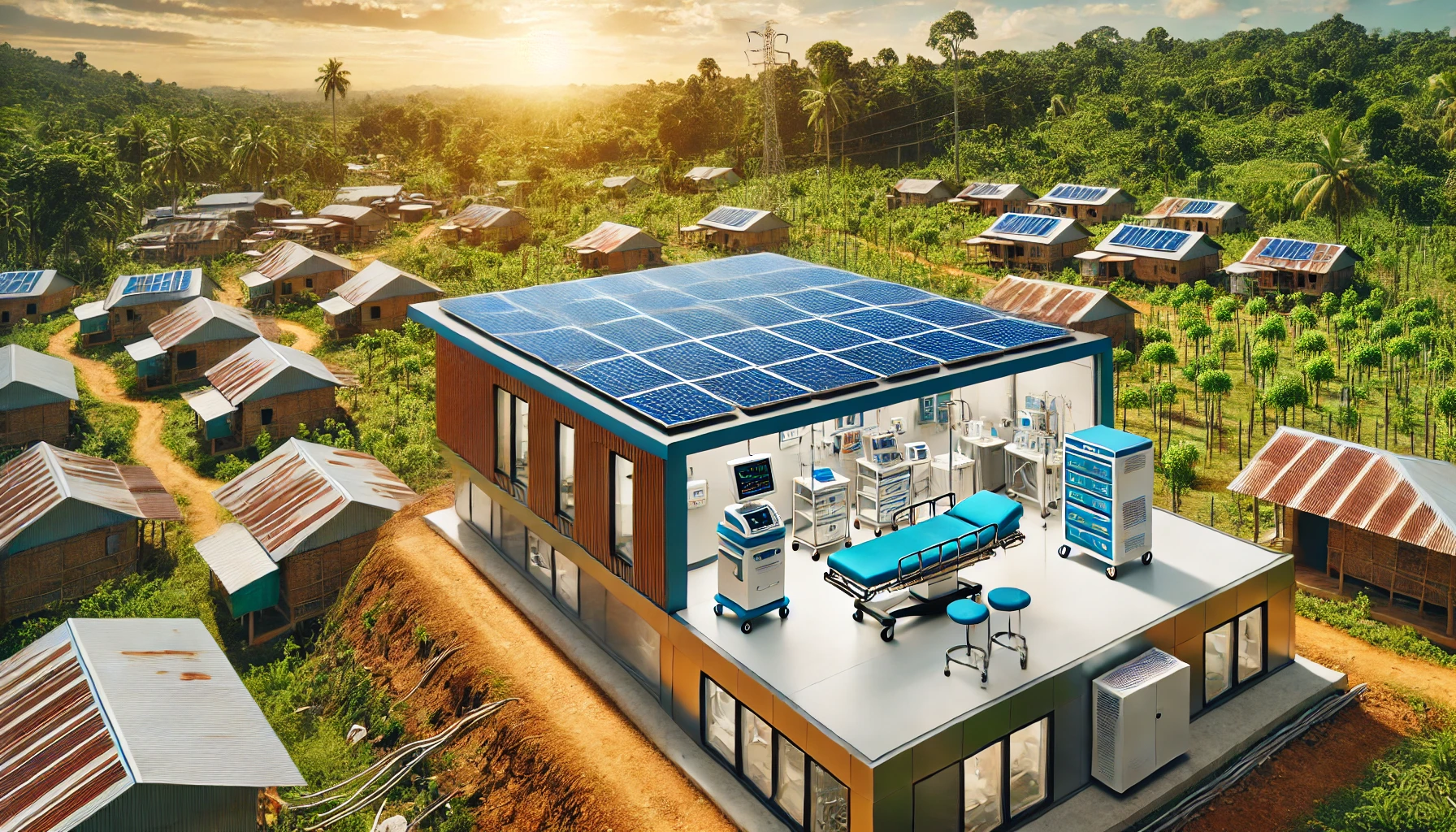The Role of Solar Energy in Advancing Primary Healthcare in Emerging Economies
The document explores how solar energy can improve healthcare in developing nations by providing reliable electricity to facilities, with UNICEF and international partners playing key roles in implementing solar solutions. It highlights successful initiatives in India and Africa, while emphasizing the need for long-term planning and collaboration to ensure sustainability.

Researchers from institutions such as Jaipur National University, Namibia, UNICEF, Copenhagen, All India Institute of Medical Sciences, and the United Nations Children's Fund (UNICEF), highlight the significant role of solar energy in improving healthcare systems in developing nations. The paper emphasizes how sustainable energy, particularly solar power, can play a crucial role in advancing healthcare delivery in low- and middle-income countries (LMICs), which often face severe infrastructure challenges. With unreliable electricity supply being a significant issue in healthcare facilities across these regions, the report connects the need for clean, reliable energy to the United Nations Sustainable Development Goals (SDGs), specifically SDG 7 (affordable and clean energy) and SDG 13 (climate action).
Energy Deficiencies Impact Healthcare in LMICs
The report highlights that nearly 50% of healthcare facilities in LMICs lack access to piped water, and over 59% face electricity shortages, severely affecting their ability to provide essential services. The lack of reliable electricity impacts the functioning of critical healthcare equipment, including life support systems, ventilators, and vaccine refrigerators, which are vital for providing uninterrupted medical care. The authors stress the importance of solar energy as a sustainable and cost-effective solution to these challenges. Solar photovoltaic (PV) energy, according to the International Energy Agency (IEA), has become the cheapest source of electricity in many regions, with prices having dropped by approximately 80% since 2010. This has made solar energy an economically viable alternative to traditional fossil fuels in many developing countries. The World Bank has also been active in promoting solar energy projects, supporting over 1,000 projects in more than 100 countries with a combined capacity of over 16 gigawatts (GW). The report provides numerous examples of how solar energy has been integrated into healthcare systems in LMICs, including successful initiatives in India and sub-Saharan Africa.
India and Africa Lead the Way in Solar-Powered Healthcare
In India, solar energy projects have been introduced in various healthcare facilities, including primary health centers (PHCs) and tertiary care hospitals, ensuring they remain operational during crises such as the COVID-19 pandemic. For instance, a rural hospital in India that switched to a solar PV system continued to provide essential services without disruption, showcasing the potential of solar energy to enhance healthcare resilience. In sub-Saharan Africa, similar efforts have been made, with countries like Liberia seeing a significant increase in electricity access in healthcare facilities, thanks to the installation of solar PV systems. Despite these successes, the report also identifies several challenges in implementing solar PV projects in healthcare settings. One of the major hurdles is the maintenance and long-term management of solar systems, which require proper operation and upkeep to ensure continuous functionality. Without adequate maintenance, many solar systems face premature failure, undermining the benefits of the initial investment. This issue is exacerbated in developing countries, where there is often a lack of local capacity, both in terms of financial and human resources, to maintain these systems. The document suggests that the traditional model of relying solely on national government agencies to manage and maintain solar installations is inadequate and calls for more innovative business models and stronger collaboration between stakeholders.
Collaborative Partnerships for Solar Expansion
The role of international organizations is vital in addressing these challenges, and the report details the contributions of various groups working to advance solar energy in healthcare. UNICEF, for example, has been instrumental in supporting solarization projects in healthcare facilities across more than 80 countries. Through initiatives like the Solar for Health (S4H) program, UNICEF has provided technical assistance, installed solar PV systems, and ensured vaccine cold chains remain intact by using solar-powered refrigerators. In Africa, over 88,000 solar refrigerators have been installed since 2017, helping ensure vaccines are safely stored and transported, even in regions with unreliable electricity.
Global Initiatives Driving Solar Innovation
Other organizations such as Sustainable Energy for All (SEforALL), Power Africa, and Lighting Global have also made significant contributions. SEforALL, for instance, supports governments in achieving SDG 7 by providing technical and financial assistance for energy projects, while Power Africa, a U.S.-led initiative, aims to add 30,000 megawatts (MW) of new renewable energy capacity in sub-Saharan Africa by 2030. Lighting Global, part of the World Bank Group focuses on expanding the off-grid solar market to provide energy access to millions living without electricity. The document concludes by emphasizing the importance of sustained international cooperation, long-term planning, and innovative business models to make solar energy a scalable solution for healthcare systems in developing countries. It calls for governments, aid organizations, and private sector actors to work together to ensure that healthcare facilities, particularly in remote and underserved areas, have access to reliable and sustainable energy.
The Future of Healthcare Powered by Solar Energy
The integration of solar energy into healthcare is not only crucial for improving medical services but also for achieving broader environmental and economic sustainability goals in line with global climate action initiatives. By providing consistent, affordable energy to healthcare facilities, especially in regions where power supply is unreliable or nonexistent, solar energy has the potential to revolutionize healthcare access, ensuring better patient outcomes and improving public health. International aid organizations, governments, and development partners must collaborate effectively, sharing resources, knowledge, and technology to maximize the impact of solar energy in healthcare. With continued commitment and investment, solar power could become the cornerstone of a more resilient and sustainable healthcare system in developing nations.
- FIRST PUBLISHED IN:
- Devdiscourse









